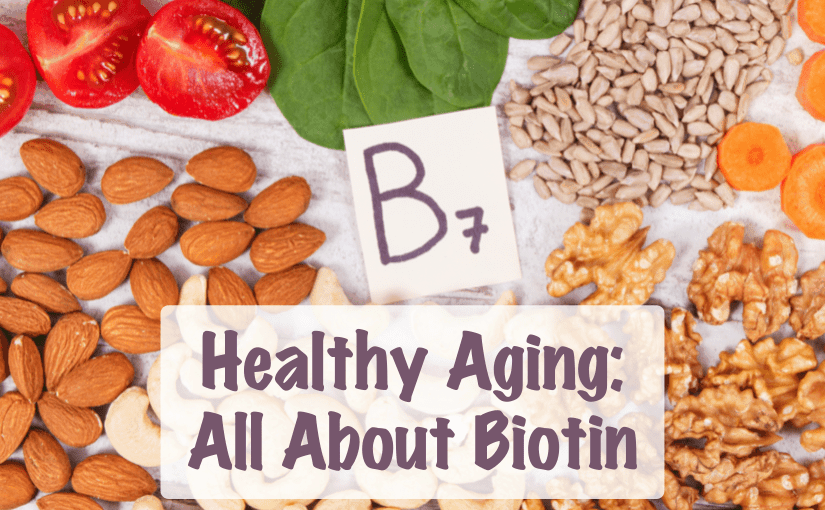
Ensuring we consume adequate amounts of vitamins and minerals is important for our health, especially as we age. Biotin is no exception. Learn what it is, how to ensure you are consuming enough, and what it does for your body.
What is Biotin and what does it do?
Biotin, also called vitamin B7, is a B-vitamin that is found naturally in many foods. This vitamin aids in energy production by turning carbohydrates, fats, and proteins into energy.
How much Biotin do I need?
Biotin requirements are age-dependent. Average daily recommendations for the various life stages are listed below:
- Birth – 12 months: 5-6 mcg
- Children ages 1 – 8 years: 8-12 mcg
- Children/Teens ages 9 – 18 years: 20-25 mcg
- Adults 19+ years and pregnant teens/women: 30 mcg
- Breastfeeding teens and women: 35 mcg
What foods contain Biotin?
There are many foods that contain biotin. You can obtain the recommended amounts of biotin through consuming a variety of the following foods:
- Meat, fish, eggs, and organ meats (liver)
- Nuts and seeds
- Vegetables (specifically sweet potatoes, spinach, and broccoli)
Am I getting enough Biotin?
Most people who eat a healthy diet will consume adequate amounts of biotin. There are, however, a few groups of people more likely to be deficient in biotin. These groups include:
- Women who are pregnant and/or breastfeeding
- People with a dependence on alcohol
- Those with biotinidase deficiency
- This is an inherited, treatable disease where the body cannot process biotin due to an enzyme deficiency.
What if I don’t get enough Biotin?
Luckily, biotin deficiency is rare in the United States. A deficiency in biotin can cause thinning hair or even hair loss, a rash in the facial region, acidic blood and urine, seizures, skin infections, brittle nails, and nervous system disorders. Symptoms of biotin deficiency in infancy differ slightly and can include weak muscle tone, sluggishness, and general delayed development.
What are the health effects of Biotin?
Research is still being conducted on the effects of biotin on overall health. Dietary supplements containing biotin claim to improve the healthy of your hair, skin, and nails. Little scientific evidence exists to fully support these claims. Some small studies have shown that people with thin and brittle nails who took a biotin supplement had improvement in the thickness of their nails. Under a physician’s care, high doses of biotin have improved a rare hair disorder in children and a skin rash in infants. As always, more research is needed for definitive results and before biotin supplements are recommended for the general public.
Schedule a Nutrition ConsultationWritten by Sarah Brunner, RDN, CD; Elite Sports Clubs Registered Dietitian
Sarah is certified in food allergies/intolerances and nutritional counseling, Academy of Nutrition and Dietetics; has a certificate in Dietetics from Mount Mary University; and a BA in Education and Mathematics from the University of Wisconsin – La Crosse.
